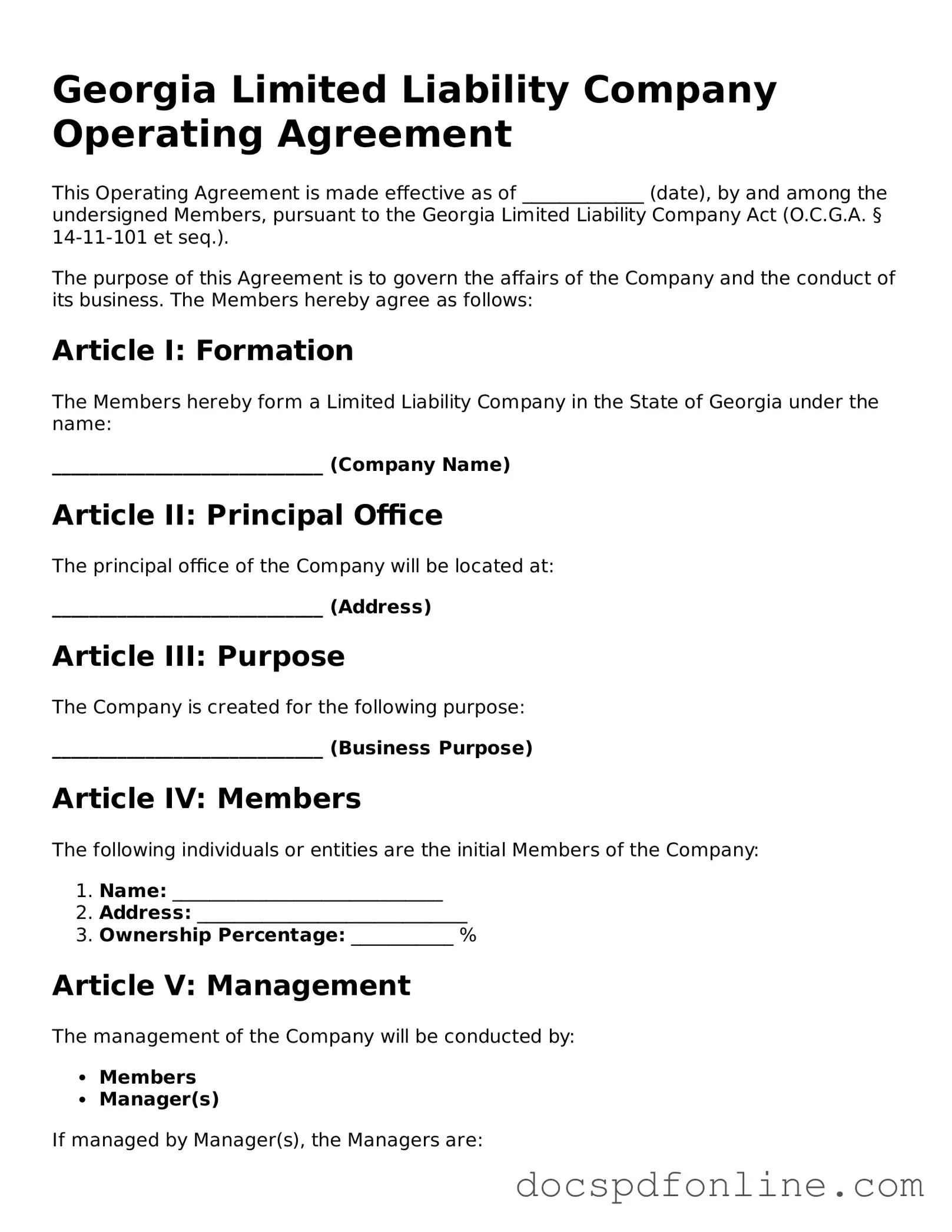Legal Operating Agreement Template for Georgia
The Georgia Operating Agreement form is a legal document that outlines the management structure and operating procedures of a limited liability company (LLC) in Georgia. This agreement serves to define the rights and responsibilities of the members, ensuring clarity and organization within the business. By establishing rules for operation, the form helps to protect the interests of all parties involved.
Launch Editor Now

Legal Operating Agreement Template for Georgia
Launch Editor Now
Save time — finish this form fast
Finish Operating Agreement online — edit, save, download made easy.
Launch Editor Now
or
↓ PDF File
